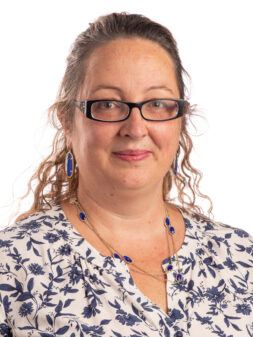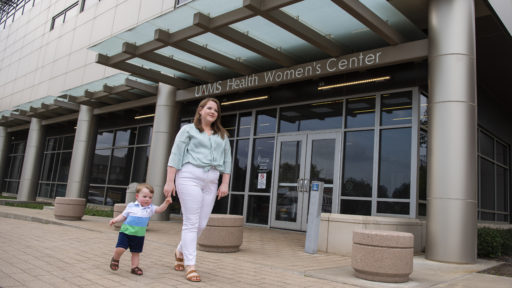Description
One of the biggest questions expecting mothers face is the choice to breast or bottle-feed. Breastfeeding offers short and long-term benefits to both mom and baby. From lower obesity and improved immune health in your bundle of joy to reduced rates of cancer and shedding the baby weight for mom, some of the perks associated with breastfeeding might surprise you. Learn about the benefits of a mother’s milk and how to talk to your doctor about the best way to nurture your baby and give them a head start in life.
Video Player
Transcript
Cassie Hunter, M.D.:
We are in northeast Arkansas — Lawrence County — specifically Walnut Ridge, Arkansas. This is the Lawrence County Family Clinic. It’s where I practice. So I do all the way from birth until death. So I have a wide variety here. Breastfeeding is super important for a lot of different reasons, very beneficial not only to the baby, but to the mom. The cardiovascular benefits, the reduction in female cancers, the help with losing the baby weight is a big one — we try to sell it with that — less obesity in breastfed babies, less eczema. You can also see just economically. It’s cheaper. Formula is super expensive.
Ebene Givan:
I had my daughter at 17 and I did not breastfeed with her. I did not really know that that was an option. During that time, formula was the way to go. It was almost like second nature. It was just Enfamil or Similac. No one that I knew had ever even breastfed.
Danielle Thomas:
So I have four children. I was 19 when I got pregnant and I did not breastfeed at all. We found a doctor in Saline County, in Benton, and in that doctor’s office, there was never any evidence of breastfeeding. There weren’t any signs. There weren’t any pamphlets, anything. When they asked me if I was going to breastfeed or bottle feed. And I said bottle feed and that was it. I mean, it wasn’t something that was talked about. I had a sister that had a baby. She didn’t breastfeed. My mom didn’t breastfeed. My grandma didn’t breastfeed.
Misty L. Virmani, M.D.:
Broaching the topic of breastfeeding can be a very sensitive subject. The way I approach talking to physicians about speaking to their patients about breastfeeding is by encouraging them to think about how they talk about every other topic in medicine. We make sure that our patients can make informed decisions about their health risks. We talk to them about smoking. We talk to them about the foods they eat, the exercise they choose to take or not take in terms of the risks of each choice. Breastfeeding should be approached in the exact same manner. We need to make sure that they have all of the information in their arsenal to be able to make — what it exactly is — an informed decision. We need to be part of that solution. We need to be part of the group that talks to moms about why it’s important for them to breastfeed, and then when they choose to breastfeed, to be able to support them in that choice.
Givan:
I had my youngest in 2015. I was much older. I had become more aware, but I knew I wanted to breastfeed. It was something that I had seen my sister do, and she breastfed faithfully. And I just knew the benefits of it. Her doing it kind of made me want to learn more about it. My doctor was very open and very honest about breastfeeding. They offered all kinds of resources. There were so many things that were, like, brand new to me. It was literally like I had never had a child before.
Thomas:
My second child was born in 2011. Again, there wasn’t really any information on breastfeeding or anything on the walls, but I did have friends that had breastfed at that point that had children. And so with him, I breastfed until he was three months old and I was the first one in my family to breastfeed a child.
Hunter:
So family practice is interesting, and I think it’s a really good place to start in helping the breastfeeding because I have very often, you know, pregnant ladies coming in here for not routine prenatal care, but for, “Hey, I’m having, you know, something totally unrelated to my pregnancy.” So I see pregnant folks a lot. And then after the baby’s born, they bring them back to me. And so there’s a lot of continuity of care there. And so I have a unique perspective in that I can use any of those visits. “Hey, I’m here for, you know, my regular insurance, wellness, physical, and I just found out I’m eight weeks pregnant.” Well, that’s the perfect opportunity to start talking about breastfeeding. We’ve got a lot of kind of opportunities to introduce that conversation in family practice.
Virmani:
The American Academy of Pediatrics actually recommends that you breastfeed exclusively, meaning that the only diet that your baby has is breast milk for the first six months of life. There’s nothing quite the same or quite as good for a human as getting their mom’s own milk. It’s perfect, and it’s made just for your baby.





